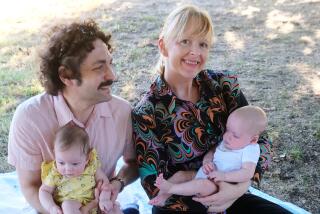Ralph Manheim; Master Translator of Literature
- Share via
Ralph Manheim, whose genius for finding English words for the sentences of others made him one of the most acclaimed translators of this century, is dead.
Manheim’s translations ranged from the fairy tales of the Brothers Grimm to Adolf Hitler’s “Mein Kampf.” He was 85 when he died Saturday at his home in Cambridge, England, of prostate cancer.
Long considered the doyen of English translators, Manheim translated more than 100 books.
Among them were the works of Sigmund Freud, Carl Jung, Karl Jaspers and and Emile Durkheim. His fiction translations included novels by E. T. A. Hoffman, Hermann Hesse, Bertolt Brecht, Erich Maria Remarque, Marcel Proust and Gunter Grass.
He translated primarily from German and French but also worked in Dutch, Polish and Serbo-Croatian. Among his most acclaimed works was Grass’ “The Tin Drum,” a disturbing story of a boy who is so estranged by the decadence around him that he determines to remain a child forever. The book was made into a widely heralded film in 1979.
That translation won Manheim an American PEN award. Manheim also translated the bulk of Grass’ fiction and recently completed work on “The Call of the Toad.”
Manheim, born in New York, was one of the youngest students ever admitted to Harvard. He graduated at 19 even though he had taken a year off to go to Europe, where he mastered German.
He began translating European works as part of a discipline for his studies. By the 1930s, he was proficient enough to be hired by the Writers Project division of the Work Projects Administration.
Later in the 1930s, when German writers began fleeing the Nazis, Manheim abandoned technical translations to concentrate on works of those refugees, who paid him generously so they could submit their manuscripts to American and English publishers.
In 1942, Manheim translated “Mein Kampf” for Houghton Miflin, his first major commission. He said later it was a troubled effort because Hitler’s style and mixed metaphors had to be rendered into simple English.
Manheim translated Jean Arp’s “On My Way” in 1948, Erich Neumann’s “The Origins of Consciousness” in 1954, and artist Paul Klee’s “The Thinking Eye” in 1956.
Then came Remarque’s “The Night in Lisbon” in 1964, as well as books by younger postwar German writers and Grass.
Manheim also began to translate from French and other languages, notably from the work of Louis-Ferdinand Celine and Michel Tournier.
Manheim lived the postwar years in Paris until the death in 1985 of his third wife, Mary, an American. He then moved to Cambridge with his British fourth wife, Julia.
More to Read
Sign up for our Book Club newsletter
Get the latest news, events and more from the Los Angeles Times Book Club, and help us get L.A. reading and talking.
You may occasionally receive promotional content from the Los Angeles Times.






